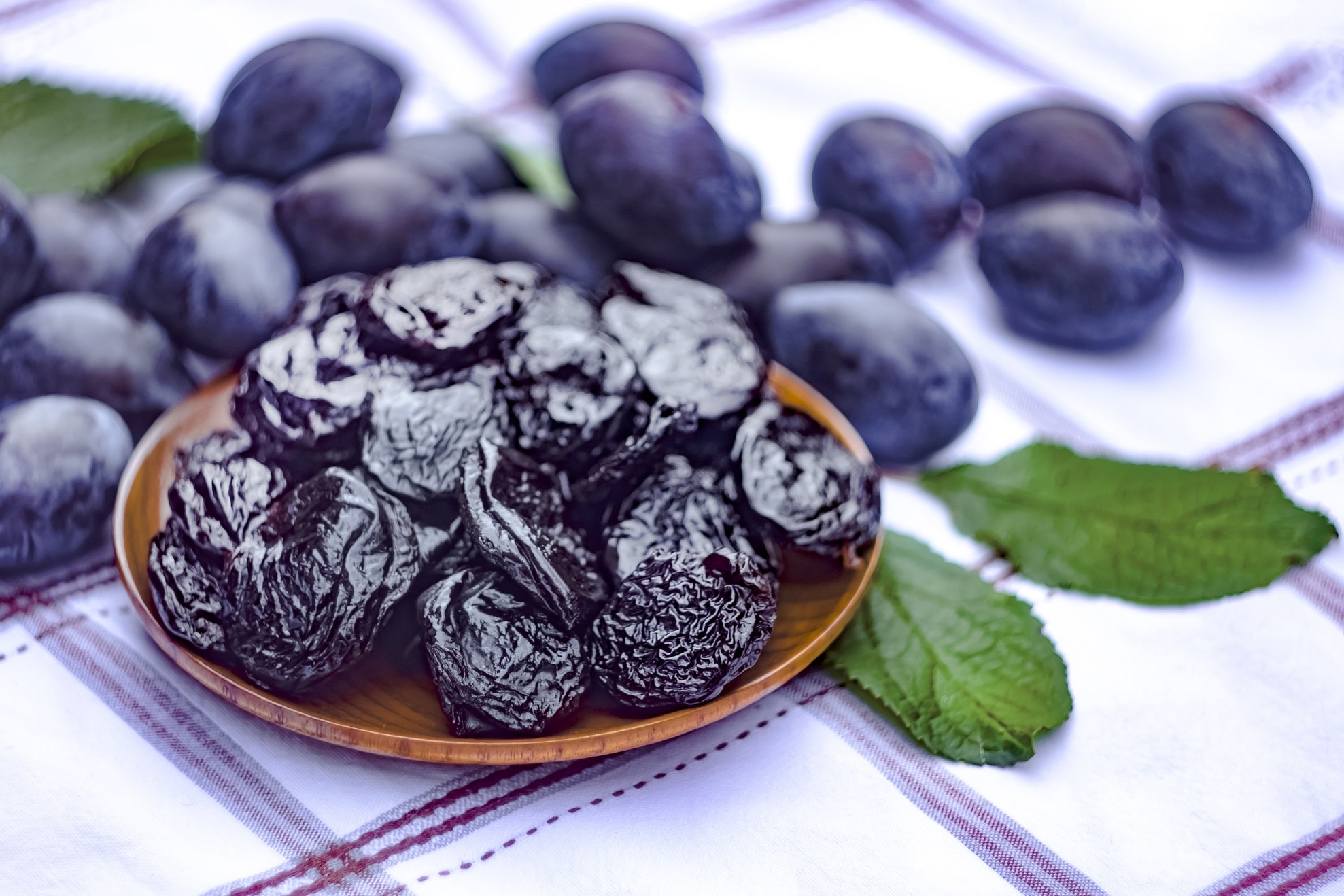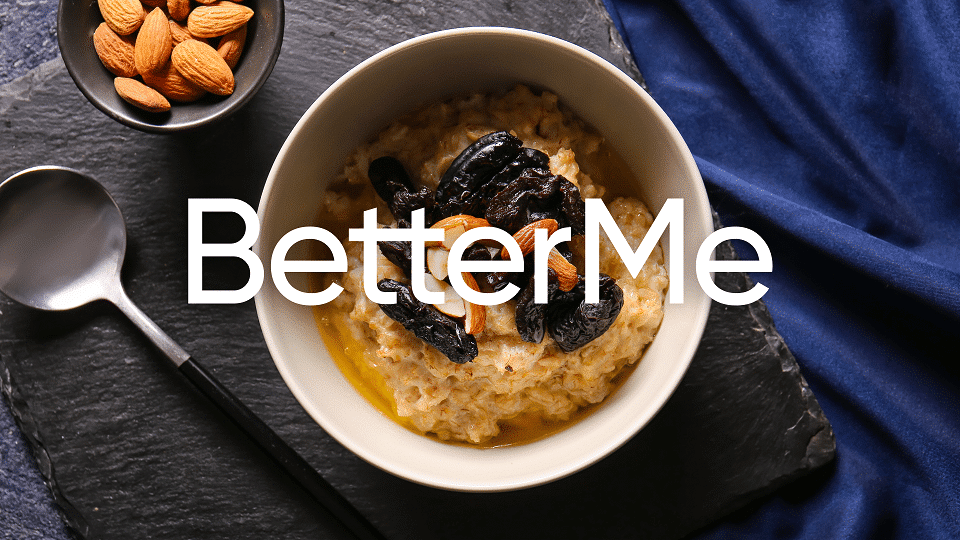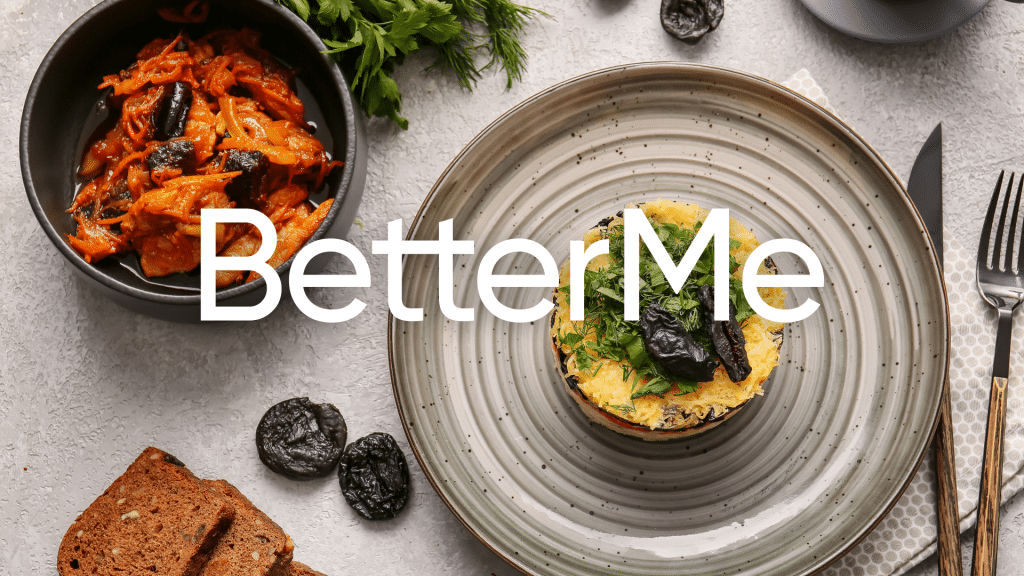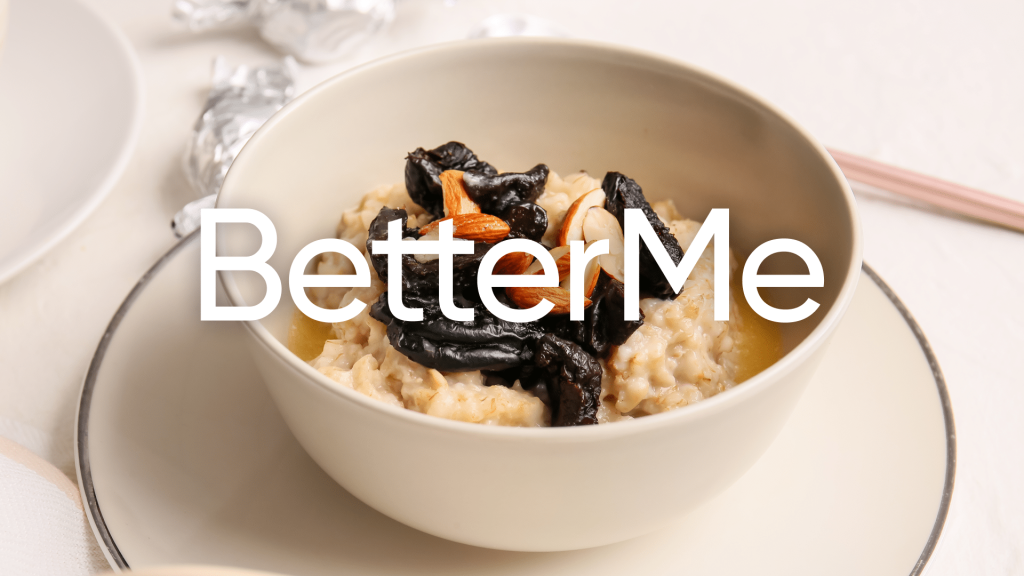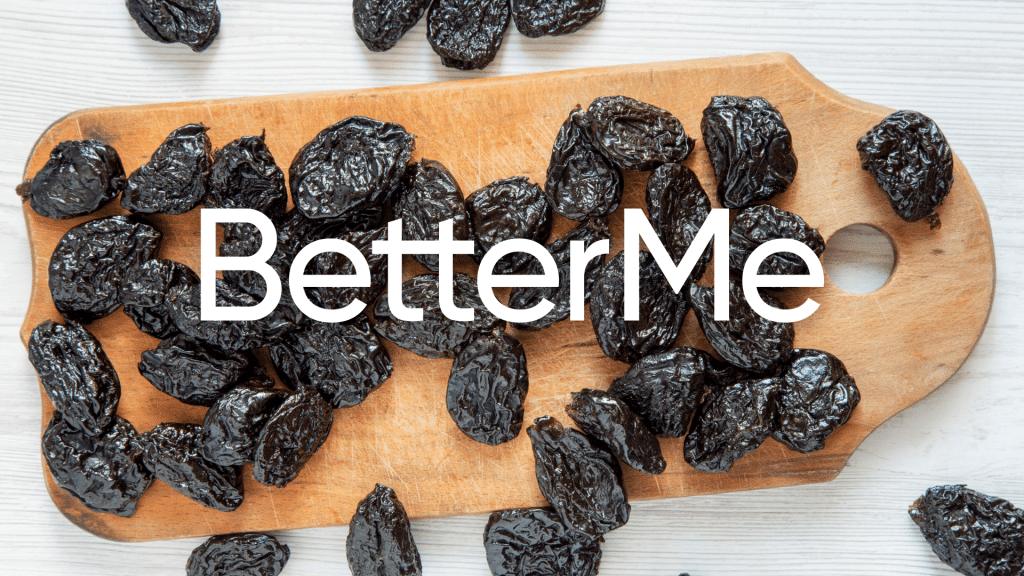Prunes, otherwise known as dried plums, are nutritional powerhouses that have gained fame in the food industry over the last couple of years. They are loved because they are packed with nutrients, are pretty versatile, and have a ton of health benefits. However, the number one reason behind their popularity is what they bring to the table. Benefits from prunes range from enhanced digestive health to helping ease your way into a healthy lifestyle. These are some of the many reasons to consider them as a staple in your diet. Again, luckily, there are so many ways you can enjoy them. You can eat them as they are, blend them, or add them in various dishes to elevate or complement them. Whichever way you choose to have them, the fact remains that you will be able to reap their benefits. Join us as we explore research backed-up benefits of prunes.
Get your personalized
meal plan!
What Are Prunes?
They are, in simpler terms, dried plums. Some people refer to them as simply dried plums. They are prepared from properly matured plums. A high percentage of moisture is removed from these plums by drying (1). Once dry, they are cleaned and treated using steam or water, and a preservative may be added (1).
Two types of plums can be used to make prunes. These are the Japanese and the European plums. Fresh Japanese plums are juicier and larger with a yellow to a medium red color (6). However, fresh European plums are smaller, denser, and with dark blue or purple-red color (6).
Dried prunes have a deep red-brown color, a savory-sweet flavor, and a chewy texture (6). Unlike fresh plums, the dried ones can last in your pantry for up to six months. However, they could even go up to a year if you store them in a fridge in a sealed container.
Prunes Nutrition Facts
The calories in dried prunes are meager, making them excellent low-calorie snack options. However, be warned because the nutrients and calories in prunes may vary depending on the servings. For example, a 30 g serving of prunes, which is about two prunes, contains the following nutrients (8):
- Calories- 42
- Protein- 0.8 g
- Fat- 0.1 g
- Carbohydrates- 10.2 g
On the other hand, a serving of five prunes provides the following nutrients as per WebMD (6):
- Calories- 114
- Protein- 1 g
- Fat- 0 g
- Carbohydrates- 30 g
- Sugar- 18 g
- Fiber 3 g
Besides the nutrients above, these fruits also contain:
- Magnesium
- Zinc
- Potassium
- Iron
- Phosphorus
- Manganese
- Copper
- Vitamins A, B, K, and C
These vitamins and minerals also help your body with several body processes and functions. For example:
- Magnesium may help prevent and manage chronic diseases such as type 2 diabetes, migraines, cardiovascular disease, and Alzheimer’s disease (10). Similarly, this mineral is also vital for healthy bone formation and can be helpful for improving premenstrual (PMS) symptoms (10).
- Iron is required in your body to prevent anemia and for growth and development. Your body uses iron to make hemoglobin, which helps in oxygen transportation from your lungs to other parts of your body.
- On the other hand, vitamin K is essential as it is used in the blood clotting process and the formation of healthy bones (9).
Every day you need to get a specific amount of these essential nutrients. That said, you can get a decent percent of these vitamins and minerals from prunes consumption.
Read More: Barley Tea Benefits, Nutrients, Side Effects, And How To Prepare It
Benefits Of Prunes
Although prunes contain the same nutrients as plums, some people often opt to consume prunes instead of plums. This is because of their long list of health benefits. Many studies have revealed that consuming prunes has many health benefits, some of which include:
Improved Gastrointestinal Health
One of the best ways of promoting gastrointestinal health is by consuming a high-fiber diet. Prunes happen to be rich in soluble and insoluble fiber. Insoluble fiber regulates bowel movements while the soluble fiber moderates digestion and enhances nutrients’ absorption from your food (6).
Similarly, dried prunes promote better gastrointestinal health due to their excellent sorbitol and chlorogenic acid source. These two help increase your stool frequency (6). Even so, there is a limited serving size that food experts suggest if you are to reap these benefits.
They suggest consuming a serving or two of prunes a day to help maintain gastrointestinal health. More than this can lead to adverse effects, as we shall see later when discussing the side effects of prunes.
Reduced Risk Of Diseases
Prunes are also loved due to their decreased risk of diseases because they are packed with antioxidants. They mostly contain the antioxidants chlorogenic acid (5-caffeoylquinic acid) and neochlorogenic acid (3-caffeoylquinic acid) (6).
These antioxidants may play a role in lowering blood glucose levels and LDL ‘bad’ cholesterol levels in the blood. For the better part, they help protect your cell against damage that often leads to diseases. For example, high blood glucose and LDL levels in the blood have been associated with an increased risk of diabetes, heart disease, and hyperglycemia.
According to experts, eating these fruits might help reduce diabetes risk due to their high fiber content and richness in phytochemicals and micronutrients (8). However, despite their sweetness, prunes won’t interfere with insulin or blood sugar levels if eaten in typical amounts. Therefore, it makes them an excellent fruit option for people with diabetes.
Better Bone Health
Consuming prunes has also been linked to better bone health due to their antioxidants and anti-inflammatory properties (6). Experts argue that these properties prevent bone loss and help maintain healthy bone density and formation (6).
Likewise, many clinical studies suggest that eating prunes can help with bone health due to its decent amount of vitamin K. Studies show that vitamin K helps improve bone density and decrease the risk of fractures (4).
Better Heart Health
Eating prunes has also been linked to better heart health due to their high fiber content. In addition, experts acknowledge that it is a good source of the soluble fiber called pectin that helps balance cholesterol levels (8).
High cholesterol levels are a risk factor for heart diseases like coronary heart diseases and other conditions like atherosclerosis and stroke. In addition to fiber, prunes also promote heart health due to their antioxidant properties.
These properties may help prevent plaques from forming in your arteries, another risk factor for cardiovascular disease. They also promote heart health due to their richness in potassium, which helps manage blood pressure and keeps your heart beating at the right pace (8).
If you wish to free yourself from all the extra pounds that have been weighting you down for way too long, start using the BetterMe app and overhaul your entire life!
Promotes Digestive Health
Eating prunes can also support digestive health due to their fiber and phytonutrients levels (8). These help increase the stool volume and frequency, promoting healthy bowel movements (8).
These fruits also have prebiotic properties that help supply nutrients that promote healthy bacteria in your intestines. This helps avoid digestive problems such as constipation. Several studies reveal that prunes can help relieve constipation, possibly better than other natural foods like psyllium husks (8).
Controlling Appetite
Prunes are an excellent food to help prolong satiety. They help keep you feeling full longer due to their high fiber content (2). In addition, the high fiber slows down digestion resulting in a controlled appetite.
Similarly, prunes have a low glycemic index (GI), which gradually increases blood sugar levels (2). Experts reveal that consuming a low GI diet allows you to go for long without feeling hungry because of the increased satiety.
However, you need to consult with your doctor before following a GI diet, especially for weight loss purposes. Remember that such a diet causes a slow and smaller rise in your blood sugar levels and may, therefore, cause low blood sugar or hypoglycemia.
May Slow The Aging Process
The U.S. Department of Agriculture (USDA) also classifies prunes among the foods that may slow down aging. According to the USDA, prunes score high in an antioxidant analysis called ORAC that helps protect cells from oxidative damage (5).
ORAC stands for Oxygen Radical Absorbance Capacity. Prunes have been found to have 5770 ORAC units in a serving of three and a half ounces (5). These high antioxidant levels are higher than those of other fruits and vegetables.
According to several animal studies, consuming diets rich in antioxidants does more than reduce oxidative stress. They may also alleviate anxiety levels, which have also been associated with adverse effects on cognitive function, including stress (8).
Prunes Side Effects
While many prunes benefits may make you interested in consuming them, there are also side effects. In light of this, you are advised to consult with your doctor before adding them to your diet plan. Some of these side effects include (6):
Increased Diarrhea Risk
Like any other dried fruit, eating too many prunes can cause or worsen diarrhea. Researchers believe this happens because of the high fiber and sorbitol content (6). Generally, fiber absorbs water and softens stools. However, diarrhea occurs when the undigested food moves too fast before the intestines absorb the water (6).
On the other hand, sorbitol can result in diarrhea when it is not well absorbed. Excess water enters your gastrointestinal tract, resulting in diarrhea (7). Again, the high fiber and sorbitol; content in prunes have a laxative effect on your body.
Increased Risk Of Gastrointestinal Distress
Prunes contain polyalcohol sugars like sorbitol. For example, a 100 g serving of prunes has 14.7 g of sorbitol (6). Ingesting such sugars can lead to gas, bloating, mild nausea, vomiting, and moderate to severe abdominal cramps (6).
According to WebMD, as little as 5 g of sorbitol is enough to cause bloating. Similarly, ingesting 20 g or more of this polyalcohol sugar can result in severe cramping (6). So, let your doctor know if you have problems taking any polyalcohol sugar.
Read More: Watercress Benefits, Nutrition Facts, Side Effects, And More
Increased Acrylamide Exposure
The other risk of consuming prunes is increased exposure to acrylamide. This chemical develops naturally in various foods when they are heated at a high temperature. It is formed when the sugars and an amino acid called asparagine interact (6).
When you consume this chemical, you are at a higher risk of acquiring chronic conditions like cancer (6). Knowing this, make sure you choose prunes that have been dried at a lower temperature.
Allergies
Some people may be allergic to prunes or allergens known as birch pollen (8). These allergens are also found in fruits like apples and plums. They result in itching and swelling of the mouth and throat (8).
Professionals warn that the allergy symptoms can develop within minutes, and their severity may increase depending on the servings, leading to adverse reactions (8). For example, they may lead to a severe reaction known as anaphylaxis, which is life-threatening (8). So, be sure to talk to your doctor before you make any changes to your diet.
Consuming this chemical may increase cancer risk (6). Knowing this, make sure you choose prunes that have been dried at a lower temperature.
How Many Prunes Should I Eat In A Day?
As discussed above, prunes have several side effects, which is why you should consume them in moderation. Food experts suggest that you start by eating one to two prunes daily if you are not used to a high fiber diet or are unsure how you will react (8).
Similarly, you are advised to drink plenty of water and gradually increase the servings with time. However, you can still opt to drink prune juice instead of taking the fruits as they are. Even if prune juice is unlikely to produce the same effects as dried prunes due to the removal of some of the fiber, drink it in moderation – it can still produce a laxative effect due to its sorbitol content. You can talk to your nutritionist for more guidance on the appropriate servings of prune juice.
Yanking yourself back in shape has never been so easy with our game-changing fitness app! Start transforming your life with BetterMe!
How To Add Prunes To Your Diet
A quick search online on this will tell you that there are numerous ways you can consume prunes. Their versatility and long life make them a good choice for your pantry.
As we have seen from above, there are several drawbacks associated with eating prunes. So, to be on the safe side, check in with a professional first and be sure to get their go-ahead. Once that happens, you can consider any of the following methods (6):
- Eating them alone as a snack option.
- Adding them to your morning oatmeal.
- Using them to prepare a healthy trail mix, including other dried fruits such as apricots, nuts, and dark chocolate chips.
- Blending them to prepare prune juice or smoothies.
- Adding them to baked goods.
- Add them to stews or tagine alongside a savory dish.
- Having them in energy bites for their natural sweetness and high fiber content.
Note that the nutritional content of prunes will vary depending on the preparation method plus the additional ingredients. To be on the safe side, make sure you avoid added sugars and oils that contribute to extra calories.
Again, be sure to talk to your doctor if you choose to have prune juice instead of dried prunes. It has different nutritional content than the fruits themselves. According to Medical News Today, one cup of prune juice, roughly 256 g, contains (2):
- Water- 207.97 g
- Fiber-2.6 g
- Cholesterol- 0 mg
This is also high in calories and sugar. Excessive sugar can counteract the benefits of prune juice and instead lead to weight gain or poor blood sugar control (2). If you are considering adding prune juice instead of prunes to your diet, be sure to consult with a professional.
The Bottom Line
Prunes are dried plums that have been prepared from properly matured plums. They are delicious and healthy, thanks to their long list of benefits. Some possible prunes benefits include better heart, gastrointestinal, bone, and digestive health, a controlled appetite, and a slower aging process.
However, they also have some drawbacks, including possible allergies, increased diarrhea risk, gastrointestinal distress, and exposure to acrylamide. So, be sure to talk to a professional before adding these fruits to your diet.
DISCLAIMER:
This article is intended for general informational purposes only and does not serve to address individual circumstances. It is not a substitute for professional advice or help and should not be relied on for making any kind of decision-making. Any action taken as a direct or indirect result of the information in this article is entirely at your own risk and is your sole responsibility.
BetterMe, its content staff, and its medical advisors accept no responsibility for inaccuracies, errors, misstatements, inconsistencies, or omissions and specifically disclaim any liability, loss or risk, personal, professional or otherwise, which may be incurred as a consequence, directly or indirectly, of the use and/or application of any content.
You should always seek the advice of your physician or other qualified health provider with any questions you may have regarding a medical condition or your specific situation. Never disregard professional medical advice or delay seeking it because of BetterMe content. If you suspect or think you may have a medical emergency, call your doctor.
SOURCES:
- Dried Prunes Grades & Standards (2021, ams.usda.gov)
- Everything you need to know about prune juice (2018, medicalnewstoday.com)
- Fiber and Digestion Problems (2011, webmd.com)
- Health benefits and sources of vitamin K (2018, medicalnewstoday.com)
- High-ORAC Foods May Slow Aging (1999, ars.usda.gov)
- Prunes: Are There Health Benefits? (2020, webmd.com)
- Sweetener Side Effects: Case Histories (2008, webmd.com)
- Top 5 health benefits of prunes (2021, bbcgoodfood.com)
- Vitamin K (2022, hsph.harvard.edu)
- Why do we need magnesium? (2020, medicalnewstoday.com)

